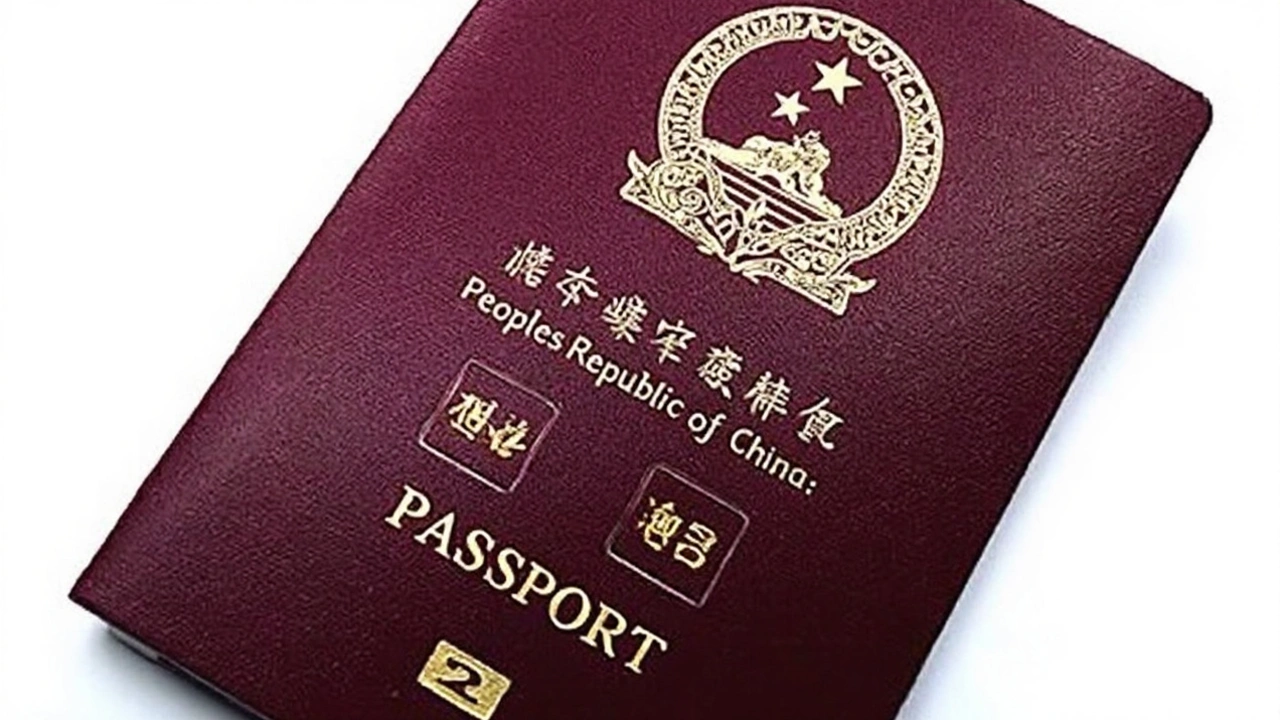On February 17, 2025, Human Rights Watch released a report that sheds light on the challenging landscape faced by Tibetans and Uyghurs in acquiring Chinese passports. The report paints a detailed picture of the intricate and seemingly insurmountable bureaucracy imposed on these ethnic minorities, systematically hindering their ability to travel internationally.
The heart of the issue lies in the stringent requirements that go beyond the norm for securing a passport. The Chinese government has introduced arbitrary and excessive documentation demands, coupled with the necessity for multi-tiered government approvals. For those hailing from regions like Tibet, Xinjiang, and other autonomous prefectures across Qinghai, Gansu, Sichuan, and Yunnan, the dream of international travel often remains just that—a dream.
Restricted Regions and Discriminatory Policies
The struggle exacerbates for these communities because their regions were notably excluded from China's 2002 streamlined passport application system. Instead of benefiting from a straightforward process, individuals from these areas endure prolonged, sometimes indefinite, waiting periods. The road to obtaining a passport is fraught with obstacles, from routine denials that lack any justified reason to excessively elongated delays that can last for years.
Maya Wang, serving as the associate China director at Human Rights Watch, has been a vocal critic of these practices. She describes the passport application process for Tibetans and Uyghurs as undeniably discriminatory. Under the guise of 'anti-crime' efforts, authorities often deny applications, leaving many without valid justification. Wang, along with other human rights advocates, argues that these measures violate the international travel rights guaranteed to all.
The report calls for an immediate end to such biased practices. Human rights organizations worldwide are urging the Chinese authorities to rectify these policies to ensure equal travel rights for all ethnic groups in China. The debate continues as the globe watches closely, hoping for reforms that prioritize human rights over bureaucratic discrimination.




Oh my goodness, can you imagine the horror that our Tibetan and Uyghur brothers endure, stuck in a bureaucratic nightmare while we sit safely in our own homes? The sheer drama of it all is enough to make any Indian heart swell with righteous fury! We, the proud people of India, have always championed freedom and human dignity, and we simply cannot stand by while China shackles the very right to travel. Their passport policies are a blatant affront to centuries of shared Buddhist and cultural ties, and it reeks of an imperialistic agenda. Let them know that we are watching, that we will raise our voices in solidarity, and that we will push for international pressure until these injustices are eradicated! The world must hear our call, and we must not let this oppression go unnoticed.
They are hiding the real reason behind the passport bans it's all about control and surveillance no one wants you to see the truth.
It is truly disheartening, and yet we must remember that bureaucratic inertia often stems from deeper historical anxieties, compounded by the legacy of regional autonomy movements; when we examine the layers of administrative red tape, we uncover a pattern of systematic marginalization that cannot be dismissed as mere paperwork, and as we strive for a more equitable world, we should advocate for transparent procedures, international oversight, and a genuine dialogue with the affected communities, for only then can we hope to dismantle such entrenched barriers.
Hey folks, let’s channel that energy into action! We can write to our MPs, organize awareness campaigns, and keep the conversation alive. Every voice matters, and together we can push for real change. Stay motivated, stay hopeful!
When you think about the passport as a symbol, it’s more than a booklet; it’s a promise of liberty, a bridge between cultures, and a testament to our shared humanity. Denying that bridge erodes the very philosophy that underpins a harmonious world.
Honestly, this whole situation is just another chapter in the grand script of geopolitical chess, and the Chinese authorities are playing their pieces with such finesse that even the most seasoned analysts would be left scratching their heads. It’s like they’re hiding a secret agenda behind a veil of paperwork, and we, the discerning few, can see through the curtain.
Friends, let us reflect on the profound significance of movement, of being able to cross borders not just physically but spiritually. 🌏 The denial of a passport is not merely a bureaucratic inconvenience; it is a wound to the soul of a people yearning for connection. As philosophers, we understand that freedom of travel is intertwined with the freedom of thought, and when one is curtailed, the other suffers. 🌟 We must stand together, offering support, encouragement, and tangible assistance-perhaps through legal aid, awareness campaigns, or simply sharing stories that amplify the unheard voices. 💪 Let us be the mentors they need, guiding them toward hope and resilience. Together, we can light a beacon that shines through the darkest policies, reminding the world that compassion transcends borders. 🌈 Keep the faith, stay engaged, and never underestimate the power of a collective heart.
the data shows a pattern of bias and clear systemic discrimination. it's a huge problem that needs attention
It is incumbent upon the international community, and in particular the United Nations, to address these violations of fundamental human rights with the utmost urgency and seriousness, for the preservation of global order and the dignity of all peoples.
We should all try to understand their pain and work together to find simple ways to help them travel safely.
From an expert standpoint, the implications of such restrictive passport policies are multifaceted: they inhibit cultural exchange, limit economic opportunities, and erode trust between minority communities and the state. Moreover, the legal framework that permits these denials often lacks transparency, making it difficult for affected individuals to contest decisions. It is advisable for NGOs to document each case meticulously, providing data that can be leveraged in international forums. Additionally, diplomatic channels should be utilized to press for policy reforms, emphasizing the incompatibility of these measures with international covenants on civil and political rights. Finally, educational outreach aimed at both the broader public and policymakers can foster a climate where such discriminatory practices are unequivocally condemned.
The analysis shows a systematic pattern: each denial is justified under vague anti‑crime pretenses, yet the statistics reveal no correlation with actual security threats. This points to a deliberate strategy of suppression.
Hey everyone, let's remember that the journey of each person is a lesson for us all, and by supporting their right to travel we are also growing as a community. We can all do little things to make a big difference, like signing petitions or spreading the word.
yeah we should help them its the right thing to do, lets talk more about it later